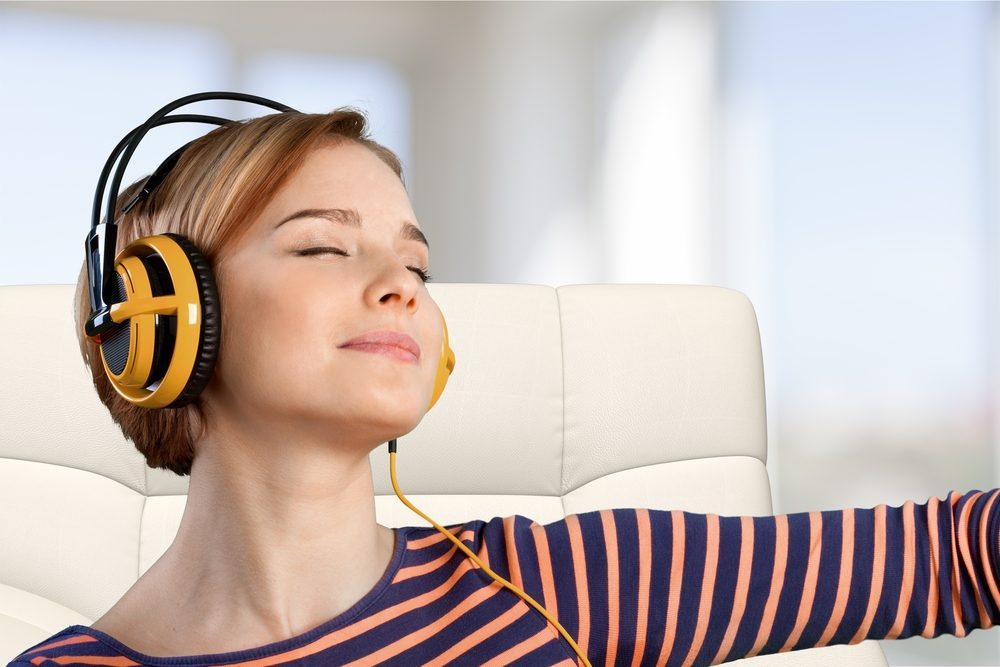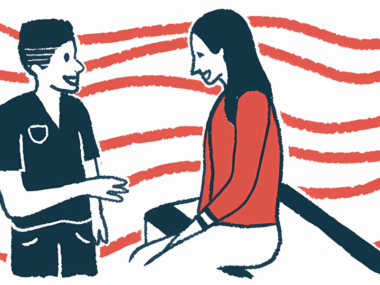Harnessing the Power of Music
Written by |

Photo courtesy of Shutterstock Listening or playing music may help people with Parkinson's disease.
A proud, black piano stands in my parents’ living room. It’s the foundation of our home. From behind the sleek mahogany panels, fury, sadness, and happiness express themselves without judgment. My operatic brother sings his troubles away. My mom, a lifelong piano teacher, often alludes to the power of music because it isn’t just a creative outlet. It’s a mood-setter. It establishes rhythm and dance. Therapists use it to explore cognitive and emotional turmoil. And it also facilitates social change.
“Powerful songs have always been the engine behind the greatest social movements — it is the marching soundtrack that unites the people and gives them focus and resolve, and it’s not limited to the U.S.,” Barrett Martin writes in HuffPost. “In 1970s Nigeria, Fela Kuti invented Afro Beat music as a way to protest the oil company regime of Nigeria. His song ‘Zombie’ became a global hit that railed against Nigeria’s military dictators. In South Africa, the indigenous Mbatanga music helped bring about the end of apartheid and it spread a message of peace and reconciliation in that nation.”
If music is powerful enough to inspire entire chapters of history, what else is it capable of doing?
Parkinson’s disease and music
Music is powerful for a number of reasons; listening to it releases dopamine and serotonin – neurotransmitters that decline in Parkinson’s patients. But a study published in 2008 suggests that learning how to play an instrument also develops motor skills and reasoning abilities. Children who learned to play an instrument exhibited more advanced motor and reasoning skills than children who didn’t learn to play an instrument.
That same study states that, “Parallels between music and language have been used to support the hypothesis that music training may strengthen verbal skills.” Since music may help to develop speech patterns, exploring sound offers a tangible solution to verbal decline. Changes in speech occur with the progression of Parkinson’s. But active participation in music challenges the progression of Parkinson’s disease. Rather than observing consistent loss, Parkinson’s patients can explore music as a source of development.
Singing and Parkinson’s disease
If you’re feeling particularly enthusiastic about singing, consider joining a Parkinson’s singing group. In the same way that music changed history for entire communities, Parkinson’s singing groups offer a sense of camaraderie that’s powerful in itself. Producing endorphins in those who participate, singing is both cathartic and constructive. And it even boosts the immune system.
A small 2012 study in Norway found that group music therapy positively affected five of six Parkinson’s patients. While speech patterns didn’t noticeably improve, a decline in speech also didn’t occur during the study. This suggests that group singing may slow the progression of speech-related outcomes for Parkinson’s patients.
Singing encourages focus on breath support, diction, volume, and emotion. Vocal strength and articulation can challenge many Parkinson’s patients. But singing reinforces some of the functions that otherwise degrade.
Moving forward
Parkinson’s disease is degenerative and continuously heartbreaking in its thievery, but there are ways you can use music to fight its progression. Whether you’re interested in listening to records, picking up an instrument, or using your good ol’ vocal cords to bring happiness into your life, music offers incredible benefits to those who explore it.
***
Note: Parkinson’s News Today is strictly a news and information website about the disease. It does not provide medical advice, diagnosis or treatment. This content is not intended to be a substitute for professional medical advice, diagnosis, or treatment. Always seek the advice of your physician or another qualified health provider with any questions you may have regarding a medical condition. Never disregard professional medical advice or delay in seeking it because of something you have read on this website. The opinions expressed in this column are not those of Parkinson’s News Today or its parent company, Bionews Services, and are intended to spark discussion about issues pertaining to Parkinson’s disease.






Fritz Youg
I already enjoy varieties of music, so I was glad to see and read this!
denise smith
Denise I say sing and dance wear ever you want to, i sing and dance washing up, and i sing in the car, it drives my husband mad he just laughs
Dawn
Yes! Yes! Yes!
I have journeyed with PD for over 15 years and music has been my companion longer that that. I am also a Music Therapist. I have witnessed the power of music in my clients and their families and in me. I am convinced that music has been the most important “medicine” I have used to slow the progression of this disease.
So. . . Sing! Dance! Play! Drum! Whistle! Hum! Conduct! Then start all over again!
Singing fan
Wow! That's exciting. I never thought of music benefiting Parkinson's disease, but it really makes sense. Especially since sometimes, just being touched is painful for them, and music can be felt without the pain. Great post!
Becky Adams
I’ve always enjoyed music and when I had a French horn, I thoroughly enjoyed playing it..I now particapre in an on line music for Parkinson’s disease class, called Beyond High C... I also participate in a speech program that has a portion of its program dedicated to music."."..... we have lots of fun in the classes .